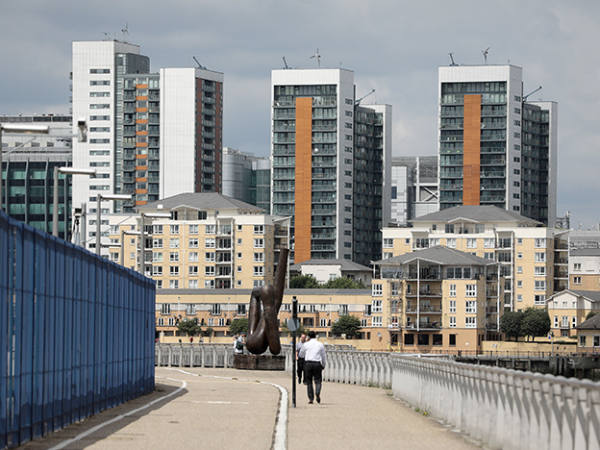- New rules for landlords have been watered down and delayed, but Labour will likely pick up the baton
- Holiday lets come with even more political risk
- Considering foreign investments might be the new way to protect buy-to-let profits
It’s doubtful if many landlords will bemoan Michael Gove’s decision to join the exodus of Conservative MPs ahead of the general election. Gove’s attempt to tackle the UK’s housing crisis, including reforming the rental market, has given way to the law of unintended consequences. The UK has seen a significant decrease in available residential rental homes over the past five years, yet demand is soaring. Put simply: private landlords sold more properties than they bought and prospective legislative changes could exacerbate the imbalance.
One of the principal reasons why many buy-to-let landlords have parked their capital elsewhere is they are no longer able to claim mortgage interest payments against rental income. Proposed changes to tenancy agreements have also hurt this corner of the market, no matter how well intentioned they may have been. The withdrawal of supply during a period where interest rates cranked up has had a predictable effect on rental charges, up by a record margin through 2023.
It wouldn’t be the first time interventionist policies have achieved the exact opposite of what they were intended to deliver, but it’s doubtful whether an incoming Labour administration will take a more laissez-faire approach.
Indeed, a report commissioned by then shadow housing secretary Lisa Nandy in early 2023 recommended the abolition of no-fault evictions and the use of “rent stabilisation” measures. Labour has been at pains to point out that the planned stabilisation mechanism does not amount to rent controls, but it is not difficult to appreciate why it could still act as a disincentive to anyone interested in becoming a landlord. True, the yield on UK residential lets still compares favourably with many other locales, but the sentiment will sour in line with the level of state intervention.
And if you’re considering an alternative tack by buying a holiday cottage in Newquay, you might want to think twice. The government has stiffened the licensing regime on holiday lets through the 'Levelling Up and Regeneration Act' and Labour plans to follow suit by implementing policies designed to stop landlords in the private rental sector from moving into other areas of the market, most notably short-term and holiday lets. It’s little wonder that property investors have opted for Airbnb and its ilk given the barriers to entry in the residential space and tax benefits such as mortgage interest relief, plus the rise in staycations has presented commercial opportunities in this corner of the market. Opportunities that politicians seem keen to snuff out.
Admittedly, local people in many picturesque towns have effectively been priced out of the property market due to the proliferation of holiday lets. Some popular seaside destinations resemble ghost towns in the bleak midwinter, so you can recognise the problems from a localised perspective. In 2016, residents in the Cornish seaside town of St Ives voted to insert a “principal residence” condition into the sale of new-build properties to halt the spread of second-home ownership. The measure – something of a litmus test – was less effective than its proponents had envisaged, so Westminster politicians have turned to the local planning process as a means of constraining non-permanent rents. If you’re considering setting up a holiday let in the UK, it obviously pays to avoid the growing number of towns where local restrictions apply.
To make matters worse, in Jeremy Hunt’s latest budget, he abolished the 'furnished holiday lettings' tax provision which gives extra tax relief for costs incurred furnishing holiday lets that aren’t available to private rentals. It's another move designed to get landlords to exit the short-term letting sector. Whether all this amounts to tinkering at the margins depends on your perspective, but you are left with the impression that there is more political capital in scapegoating private landlords than addressing issues like urbanisation, immigration, and demographic change, all of which have had a profound impact on the private rental market.
The UK population has increased by 15 per cent since the turn of the millennium, a rate of expansion analogous to the post-war surge. As with the 'baby boomer' era, the UK is exhibiting a chronic shortfall linked to the provision of private sector housebuilding. According to a report published last year by the Centre for Cities, a non-partisan research unit, the cumulative shortfall in the UK now amounts to 4.3mn homes. Therein lies the fundamental issue.
Leaving aside bricks-and-mortar, it is still possible to buy equity in companies that own holiday lets, for inclusion in a pension, but that entails an opportunity cost in terms of capital appreciation. It is also fair to say that Sipp administrators remain wary of certain property-linked investment schemes because of potential difficulties with HM Revenue & Customs (HMRC). The mood music is unlikely to improve given the likelihood of political change.
A political consensus seems to have emerged to make life as difficult as possible for individual landlords. It is generally accepted that an increased regulatory burden disproportionately impacts small businesses, whatever the industry, so why should the private rental sector be any different? Some readers will recall that back in 2021 BlackRock’s European Property platform formed a joint venture with Outpost Management – a London-based real estate asset management firm – to invest in the structurally underserved UK residential market, including 'build-to-rent' schemes. Could this be the shape of things to come?
All this is rather depressing for individuals looking to supplement their pensions through the private rental market, surely a noble objective given the state of public finances. But if both of the main political parties are intent on turning the screw, perhaps investors would be better served by parking their capital abroad.
Owning a second home in Europe has become a more problematic endeavour since we voted to leave the European Union (EU). UK citizens who do not have a visa are unable to spend more than 90 days in an EU country in any rolling 180-day period, although countries such as Greece and Malta offer ‘golden’ visas for those wealthy enough to make a significant investment in the country. Moves are also afoot in France whereby special arrangements could be enacted to support UK nationals who own second homes, although it remains a rather contentious political issue. It is conceivable that provisions governing the Schengen Area could eventually be amended following the EU elections, due to commence on 3 June.
The current restrictions on the length of a UK citizen's stay don’t necessarily impact the property owner if the primary aim is using the property to generate income. Yet as anyone with first-hand experience of letting property abroad will confirm, legal complexities can vary widely depending on the locale. Unfamiliarity with the local market can often function as a stumbling block and there are inheritance and other tax issues to take on board, along with property registration considerations. And yet, the potential for higher rental returns in certain overseas markets is worth examining if for no other reason than the investment landscape in the UK has become less welcoming.
It should be noted, however, that house prices in many parts of the EU have risen steeply over the past decade, far outpacing the rate of growth for rentals. For all that, there are still some compelling yields on offer. Another point worth considering is that most regions offer a much better yield on holiday properties than they do in the residential space; the south of France provides a case in point. Here annual rental yields exceed the returns from buy-to-let properties in both London and Paris, although the region’s property price momentum stalled in the third quarter of last year, according to France’s National Institute for Statistical and Economic Studies.
Estimates vary depending on your source, but the residential yield in, say, Bordeaux averages 3.8 per cent, whereas you might reasonably expect at least double that rate (and probably more) for a holiday let. You could be looking at double-digit returns in popular villages such as Saint-Émilion. Aside from the coastal towns, many destinations in the region aren’t weather-dependent, so properties can generate year-round revenue.
Naturally, there are other considerations to take on board such as insurance and any commission you need to pay an agent to manage the property. You might even be on the hook for a surcharge on what is termed the 'taxe d’habitation', although that depends to an extent on where the property is located.
It’s worth keeping in mind that if you ever decide to sell the property, the capital gains tax levied will be set according to how long you have owned the property – it tapers to zero over time. Closer to home, you are required to inform HMRC about any rental income you receive from any overseas properties you own.











